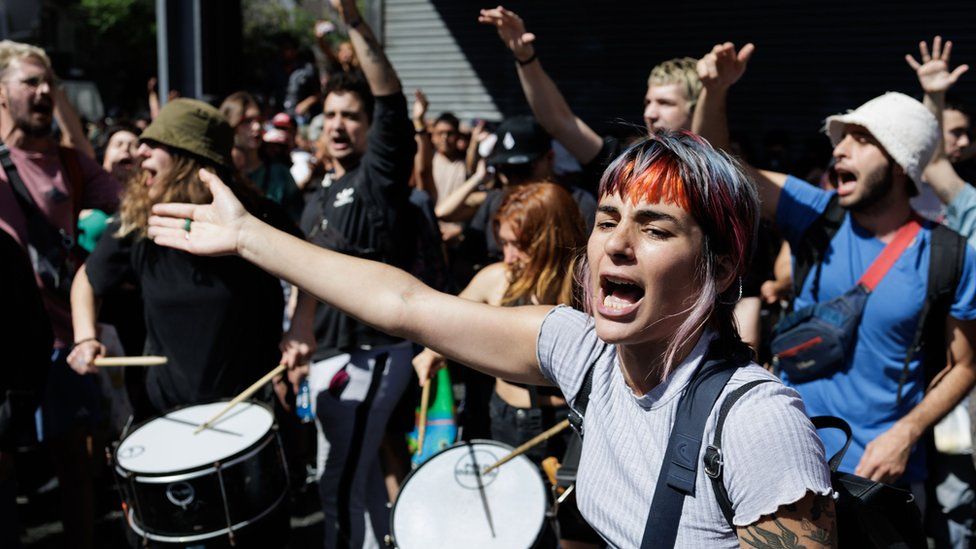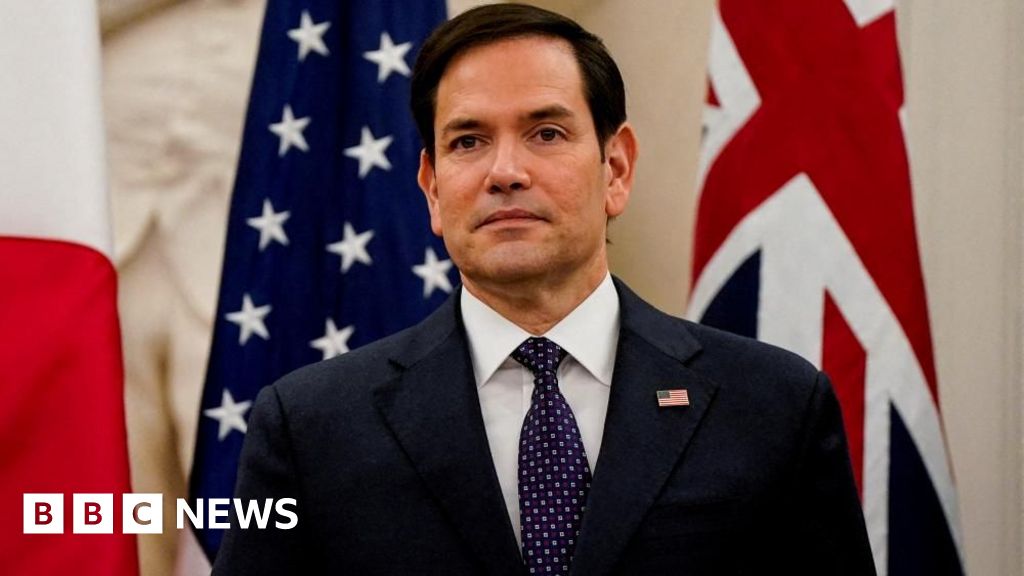ARTICLE AD BOX
 Image source, EPA
Image source, EPA
Protesters in Buenos Aires
By Mariko Oi
Business reporter
Thousands of people have taken to the streets of Buenos Aires in the first big protest against the new Argentine government's economic shock policies.
President Javier Millei announced measures that include spending cuts and a drastic currency devaluation.
He also signed an economic reform decree that will end limits on exports.
The march was led by groups that represent the unemployed. Police were deployed in large numbers to stop the protesters from blocking roads.
President Millei, who took office less than two weeks ago, has promised tough action against any groups that try to thwart his plans with disruptive protests.
The government said on Monday that people who blocked streets could lose their right to receive state benefits.
"It is a peaceful mobilisation," said Eduardo Belliboni, who leads leftist protest group Polo Obrero, which first called the demonstration, in an interview with local radio.
"We do not want any type of confrontation. We do not want any type of clash."
President Millei said "this is only the first step" as he announced the new decree in a televised address.
He had campaigned on a promise to reverse the country's prolonged slump.
Last week, the government weakened the value of its currency by more than 50% against the US dollar.
The exchange rate was cut to 800 pesos to the US dollar, from roughly 391 pesos.
Since 2019, Argentina has kept its currency artificially strong by strictly controlling the movement of the currency.
That helped drive demand for the US dollar on the informal currency market, which saw the peso trading at a much lower rate that the official level.
Economy Minister Luis Caputo also announced deep cuts to public spending, including a reduction in fuel and transport subsidies and freezing spending on some major government contracts and advertising.
Argentina is battling soaring inflation, with prices rising by around 150% over the last year. It is also struggling with low cash reserves and high government debt, while 40% of the population live below the poverty line.
The International Monetary Fund - to which Argentina owes $44bn (£35bn) - called the measures "bold" and said they would help create the environment for private sector growth.

 1 year ago
70
1 year ago
70








 English (US) ·
English (US) ·